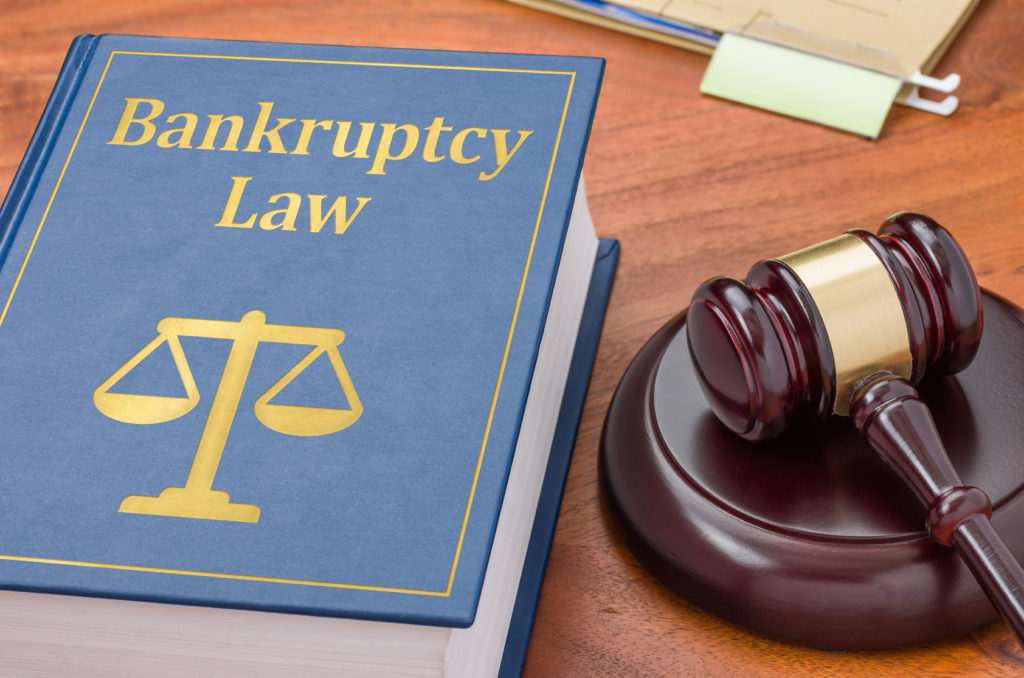How Do Bankruptcy Exemptions Work


Written by Robert DeMarco
If you cannot repay your debts, declaring bankruptcy may be an option. However, certain exemptions can limit the amount of debt you are responsible for. This article will explain how bankruptcy exemptions work and how they may impact your case.
What Are Bankruptcy Exemptions?
Bankruptcy exemptions protect your assets during bankruptcy. Both the Bankruptcy Code as well as state law contain exemption laws. Even if you do not file a bankruptcy case, the exemptions in state law can protect your property against creditors.
Exempt property cannot be sold to your unsecured creditors. It would help if you claimed the appropriate bankruptcy exemption in your bankruptcy petition to protect your property. The Chapter 7 bankruptcy trustee will not save your property if you declare no exemptions or claim the wrong exemption.
Who Can Claim Exemptions From Bankruptcy?
Because bankruptcy exemption laws are intended to protect individuals, only individuals can claim bankruptcy exclusions. A Chapter 7 bankruptcy filing means that a business’s assets are sold or returned to secured credit. The exemption system allows individuals and married couples to keep certain assets.
How Do Exemptions Work?
After bankruptcy proceedings, debtors can keep the specific property. This property is known as “exempt” property and is exempted from the bankruptcy estate.
Non-exempt property is a property that can’t be exempted. A bankruptcy debtor is generally allowed to exempt specific amounts of his or her property from bankruptcy. This can save most of the property of someone going through bankruptcy.
The necessities of modern life can be described as exempt property. These are items that are vital for daily living and work. Getting debtors out and getting them back on their feet is the focus of bankruptcy law. Bankruptcy law recognizes that taking everything away from people is counterproductive. Non-exempt property is generally anything that is not necessary for daily living and/or works.
Court rulings and experience have established a general guideline as to which property is exempt from tax. These are examples of property that Chapter 7 borrowers will need to give up (“non-exempt”), and property they can keep (“exempt”)
Federal & State Bankruptcy Exemptions
Personal bankruptcy filings are dominated by the District of Columbia (D.C.) and 50 U.S. States. Each state has its bankruptcy exemptions. The federal government also has its own set of bankruptcy exemptions. However, the states and D.C. decide whether citizens should use their exemptions or can choose to opt for federal exemptions. Only 20 of 51 countries allowed residents to access the federal exemptions in 2014.
What exemptions are available from the states? The exemptions offered by each state are identical to those provided by the federal government. Some of the most common include insurance benefits, motor vehicles, and pension/retirement benefits. Residential property is another. Trade implements such as inventory, equipment, tools, and inventory are also exempt. The number of exemptions available varies greatly between governments. In Illinois, you can exempt up to 2400 miles per motor vehicle, while Connecticut allows for $13,500.
Sometimes it is not clear which state has bankruptcy laws that you need to follow in some instances. What happens if your time is split between two homes? What if you move to another state soon after filing for bankruptcy? What happens if you are a resident of one state and work in another? You must meet the domicile requirements to determine which bankruptcy rules apply.
You must comply with domicile requirements, including the 730-Day Rules, to follow the bankruptcy rules in the state you have lived, paid taxes, and voted for at least two years. The 180-Day Rule applies if you haven’t lived in the same place for more than two years. This means you have to look back at where you lived for the last 180 days (six months) and then apply the bankruptcy laws of that state.
You can’t mix-and-match exemptions if you live in a state where you can use federal bankruptcy rules. You will have to choose between the rules of your state or those from the feds.
Exemptions For Bankruptcy
Exemptions are not complete objects, such as a car. They are objects of a particular value (e.g., a $5,000 motor vehicle exemption). This can make it a little more complicated. Let’s say that you want to keep the car, and your state offers a $5,000 exemption for motor vehicles. You can keep your car if it is less than $5,000 and you don’t have a loan. Your trustee will sell your car if your car is valued at $10,000 and you don’t have a car loan. The remaining $5,000 will be used to pay your creditors. If you own a $10,000 car and have a $5,000 loan on it, your trustee will need to give $5,000 to the bank to repay your loan. You will also need $5,000 if your state has a $5,000 exemption for motor vehicles. It would make no sense to give your creditors anything. You would be able to keep your car.
Let’s suppose your state offers a $2,000 exemption for cars, but your car has a value of $5,000. You don’t need wheels? Not necessarily. Some states and federal governments have a “wildcard exemption.” Wildcards can exempt any property. If your state only has a $2,000 exemption for cars but also has a $5,000 wildcard exemption, you can combine them to save your car.
Federal nonbankruptcy exempts are also possible to you, in addition to wildcard exemptions. Federal nonbankruptcy exemptions are bankruptcy exemptions. Their contradictory title is because they are not part of the Bankruptcy Code. These exemptions can be obtained by anyone who files through their state. However, they are more challenging because you usually belong to a specific group or occupation. These exemptions are not available to those who use federal exemptions. These are just a few examples:
- Retirement benefits. Exempted for all civil, foreign, or military service personnel; railroad workers; CIA staff; veterans; military Medal of Honor Roll recipients; Social Security benefit beneficiaries.
- Klamath Indians in Oregon receive benefits from the Klamath Indians
- Seamen’s clothing.
Homestead Exemption
Your home is the most valuable asset that you want to protect. It’s the one creditor that most people would love to have since they have a lot of equity in their homes. Equity is the difference between your home’s current value and your remaining mortgage balance. If your home is valued at $250,000, but you owe $100,000, you have $150,000 equity. You can use either a federal or state homestead exemption to protect your home.
Although most states have a homestead exemption, they differ in dollar amounts. It’s $5,000 in Alabama, and it’s unlimited in Florida if the property is less than half an acre if you live within a municipality or on 160 acres. The federal government offered a $22,975 exemption in 2014. Some homeowners attempted to protect their homes and other assets before the 2005 Bankruptcy Abuse Prevention and Consumer Protection Act. They moved to states with generous homestead exemptions and then bought expensive homes. This act states that those who purchase a home within 1 215 days of filing bankruptcy are only eligible for a $155,675 exemption (as per 2014), regardless of where they live.
You may have no equity in your home, or the state will pay your equity. It’s good news, if so! — you can keep your home. You will still need to pay your mortgage if you don’t want your lender closing down.
Bankruptcy Lawyer in Plano, Texas
Bankruptcy exemptions are an essential part of the bankruptcy process. They allow you to keep some of your property and assets after filing for bankruptcy. It is essential to understand how exemptions work and what property they cover if you are considering bankruptcy. The team at DeMarco Mitchell, PLLC, can help you navigate the bankruptcy process and ensure that you take advantage of all available exemptions. Contact us today at (972) 578-1400 for a free consultation to learn more about how we can help you protect your assets during bankruptcy.
Related Articles
Related
Chapter 7 Attorney: A Guide to Navigating Bankruptcy and Choosing the Right Legal Representation
Chapter 7 Attorney: A Guide to Navigating Bankruptcy and Choosing the Right Legal Representation Are you considering filing for Chapter 7 bankruptcy? Navigating through the complexities of bankruptcy law can be overwhelming, but with the help of a knowledgeable...
Navigating Chapter 7 Bankruptcy in Texas: Key Roles of a Texas Bankruptcy Lawyer and When to Consult One
Navigating Chapter 7 Bankruptcy in Texas: Key Roles of a Texas Bankruptcy Lawyer and When to Consult One Are you grappling with overwhelming debts and contemplating bankruptcy as a possible way out? Are you unsure about the proceedings and when to take that pivotal...
Understanding the Different Types of Bankruptcy for Individuals in Texas
Understanding the Different Types of Bankruptcy for Individuals in Texas If you're struggling with debt and considering bankruptcy as a solution, it's essential to understand the different types of bankruptcy available for individuals in Texas. At DeMarco Mitchell,...


